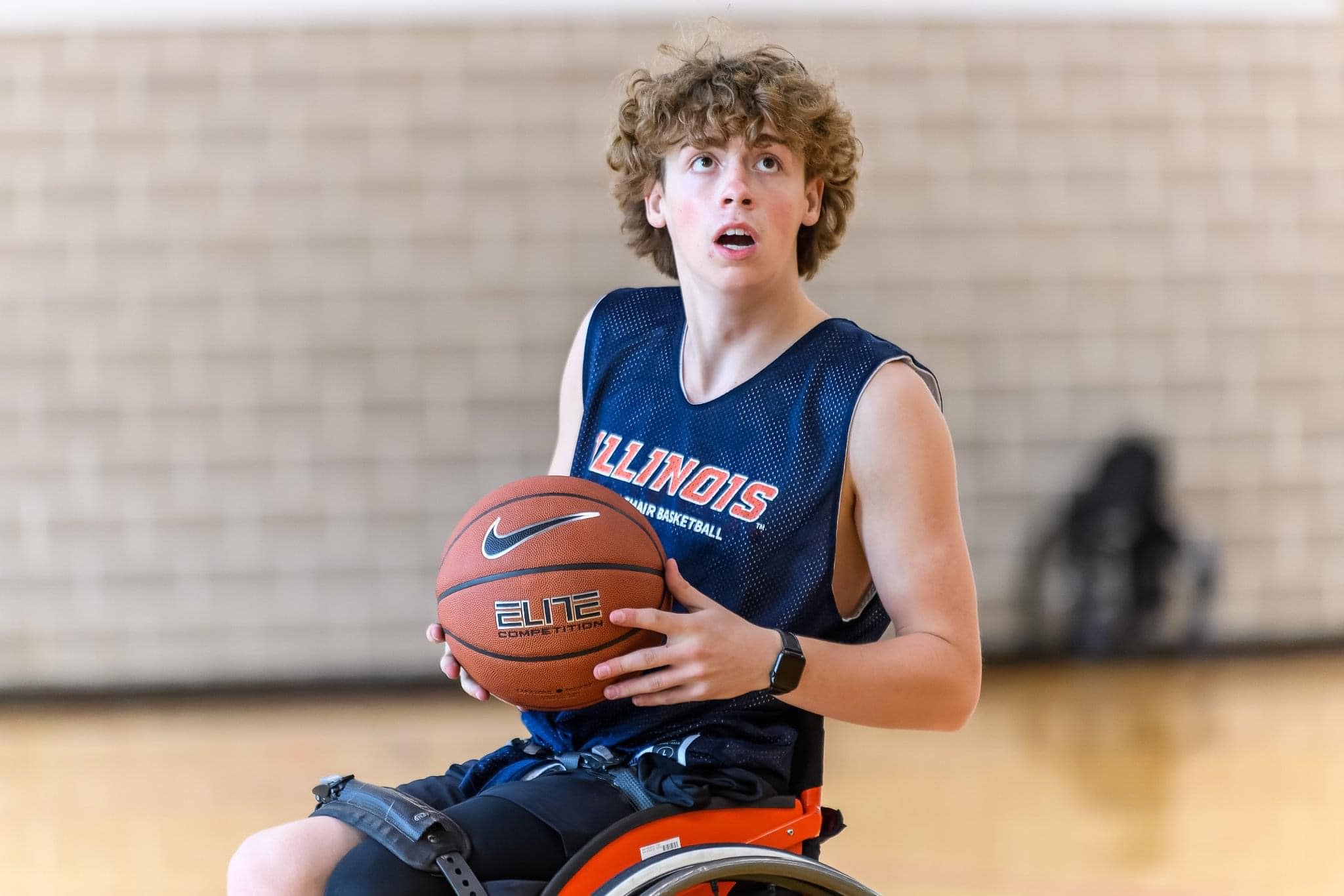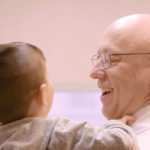Breaking records and setting goals: Grant charts his own course with Bockenheimer syndrome

Grant Pierce has his sights on premed when he arrives at the University of Illinois this fall. He hopes to become a reconstructive surgeon and help people with injured or ill limbs enhance their mobility. Grant’s field of study is a personal one, as he’s spent his life in and out of the hospital receiving care for Bockenheimer syndrome. This extremely rare congenital vascular anomaly affects the tissue in his left leg and has made him reliant on a wheelchair.
A misdiagnosis leads to a team with a rare expertise
When Grant was born, doctors initially considered the small spot on his leg to be a hemangioma — a cluster of blood vessels that appears on or under the skin. These types of vascular birthmarks tend to fade in time, but Grant’s grew as he grew, so his parents, Kary and Ryan, began looking for answers. They found the Vascular Anomalies Center (VAC) at Boston Children’s Hospital when Grant was about 6 months.
“He’s been with the VAC team for 17 and a half years, and they’ve been his primary care doctors in terms of everything related to his vascular anomaly,” says Ryan. “They’re who diagnosed Grant with Bockenheimer syndrome. We live in Kansas, and the team did a great job finding medical resources close to home and coordinating Grant’s care when we can’t get to Boston.”
Bockenheimer syndrome, also referred to as genuine diffuse phlebectasia, is characterized by widespread enlargement or dilation of the veins in the body, usually a limb. The Vascular Anomalies Center is one of only a handful of care centers in the world experienced in managing and treating this rare condition.
“Bockenheimer is kind of like having a sponge throughout the tissues of your limb that fills with blood when you apply any pressure, including standing for periods of time and change of position,” says center co-director Dr. Steven Fishman, who has overseen Grant’s care since the beginning. That’s how Grant describes how Bockenheimer syndrome affects him: “I can stand up and walk with a cane,” Grant says. “But I get lightheaded and sort of dizzy after about a few minutes of standing up and walking around, so I’m wheelchair-bound for most things outside the house. And that’s really how it’s been ever since I was 7 or so.”
Care that fueled a passion to help, heal, and succeed
It was when Grant was 7 that a broken femur exacerbated his condition. The vulnerable veins in his leg made healing nearly impossible. Over the years, Grant has endured months-long hospital stays, nearly 30 surgeries, and extensive rehabilitation. It would be enough to dampen anyone’s spirit, but not Grant. If anything, his experience has fueled his drive and has inspired him in every aspect of his life.
“I’ll tell any kid who’s struggling with a disability or any sort of medical need that you should never limit yourself to what other people perceive of you, whether that be with your disability or any sort of limits people put on you. Always try and push yourself to be the best person you can be.”
For Grant, this means being a competitive student and record-setting athlete. He participated in the International Wheelchair and Amputee Sports World Games in 2022 and recently became the fastest-ever high school wheelchair athlete in the country in the 3,200-meter race.
In school, he’s used his personal experience to drive his course direction, even teaming up with Dr. Fishman for his senior year pre-med science specialization project. “I’ve known Dr. Fishman since I was six months old, so I figured I’d reach out and see if he would help me in my project,” Grant says. “And sure enough, we got on a Zoom call, and I’m pretty sure we talked for almost an hour about Bockenheimer syndrome and vascular disabilities, as well as medical interventions.”
The next chapter
Fresh off graduation, Grant’s taking in every moment of this unforgettable time in life. Still, he’s excited to head off to college and grateful for the opportunity to play on the school’s basketball and track teams. But — not to get ahead of himself — he’s already thinking about medical school. “It would be nice to go to Harvard,” Grant laughs. “And be in a class with Dr. Fishman.”
Learn more about the Vascular Anomaly Center at Boston Children’s Hospital.
Related Posts :
-

Answers for Isaac: A family’s journey to treat vascular anomalies
Early on, Jinah and her husband knew their son Isaac was battling something complex, but they couldn’t figure out ...
-

I’ve been there, too: What my baby’s tumor taught me as a NICU nurse
I had a toddler at home when I found out I was pregnant with my twins, Hannah and Sophie. Since ...
-

Provider Spotlight: Meet Dr. Steve Fishman
How did you become interested in pediatric surgery? I became interested in pediatric surgery when I was first exposed ...
-

Targeting treatments for vascular anomalies, courtesy of cancer genetics
Vascular anomalies — overgrowths or malformations of the capillaries, veins, arteries, and/or lymphatic vessels — often confound physicians, especially in acute ...





